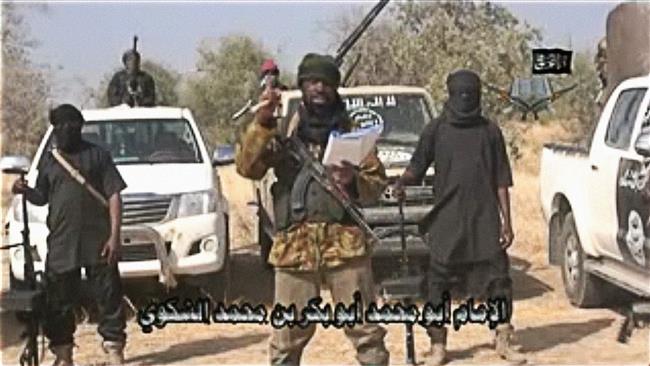Boko Haram terrorists attack key Nigerian city of Maiduguri

Takfiri Boko Haram terrorists have launched an attack against the key northeastern Nigerian city of Maiduguri amid reported clashes with government troops.
The assault on the major city took place just past midnight on Sunday, according to local and government sources cited in press reports. Military helicopters were reported circling the city later during the day.
All major roads to the city have been reported blocked and commercial activity in the area has been halted.
Fierce fighting, meanwhile, reportedly continues on the outskirts of Maiduguri as the Takfiri terrorists attempt to gain access to the city.
Moreover, the Nigerian military is conducting air strikes against the militants in the area, where a curfew has been imposed.
Home to tens of thousands of refugees, who have fled Boko Haram violence, Maiduguri was visited on Saturday by Nigerian President Goodluck Jonathan, who is running a reelection bid in February.
According to local press accounts, the Takfiri militants began the attack at the edge of the city in the Njimtilo area.
The notorious terrorists control vast swathes of the northeastern Borno State and a number of areas in neighboring Adamawa and Yobe states. They recently committed a major massacre in the town of Baga by Lake Chad and gained control over it.
The Nigerian army’s inability to defeat the group has become a major headache for President Jonathan, who is running against opposition candidate Muhammadu Buhari.







